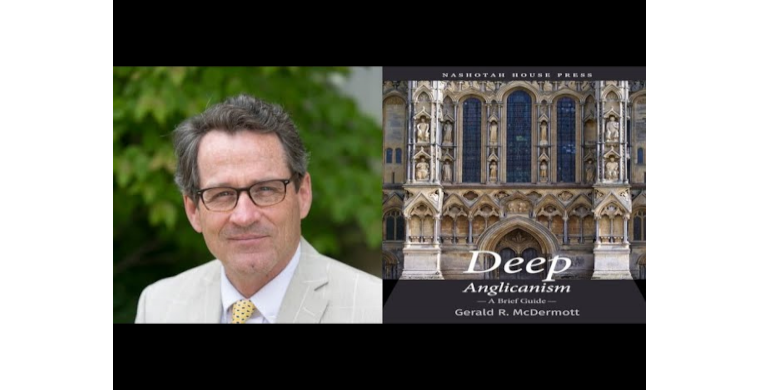DEEP ANGLICANISM: A Brief Guide
By Gerald R. McDermott
Nashotah House Press 2024, 348pp
Amazon Books: $15.43
Reviewed By David W. Virtue, DD
www.virtueonline.org
August 16, 2024
This book will introduce the reader to the Anglican tradition at a deeper level of the tradition. By "deep" I mean an approach that transcends the usual divisions of "high church," "broad church," and "low church."
In short it means plumbing the depths of orthodoxy, liturgy, and sacraments, while travelling on the pilgrim road and living a life of adoration in pursuit of the Beatific Vision.
McDermott is an orthodox Anglican theologian, priest author of 25 books and hundreds of articles on Jonathan Edwards. He is one of the finest, most fully qualified writers with the requisite Ph.D, seminary trained and a former university professor. His book can be read by the learned and the pew sitter. He writes in clear, plain English, something academics are often not prone to. Here is a sample:
"While Roman Catholics say the Eucharist is the source and summit of worship, Anglicans say that preaching and Eucharist are both important and Eucharist without preaching might lack something."
Or his take on the Via Media. It is a Latin term for "the middle way." But between what? "Since the nineteenth century Anglicans have referred to the middle way between Protestantism on one side and Roman Catholicism on the other. This is what Richard Hooker (1554-1600), the greatest Anglican theologian of the English Reformation meant. He defended the Anglican way against Roman Catholics on the right and Protestant theologians on his left.
McDermott writes with refreshing clarity. But he does not mince his words.
He has chapters on Liturgy: A life of prayer; The Book of Common Prayer; Spirituality; Marriage and Death; Sacraments: God Loves Matter; The Church; and he does not dodge the Hard Sayings in Scripture; Tradition and Ways of Living in the Triune God: Why Anglican?
McDermott does not dodge the hard issue of why the Anglican Eucharist is different from Roman Catholic transubstantiation, a thorny issue for many Anglicans crossing the Tiber as many of the Western branches of the Anglican Communion devolve into heresy. He will have none of it.
Spoiler alert. Article XXVIII objects to transubstantiation because it "overthroweth the nature of a Sacrament." With clarity he writes: "There are two things in a sacrament -- the outward visible sign and the inward invisible grace. Transubstantiation has only one of the two. It claims that after the words of consecration, only the inner invisible grace remains. The outer sign has vanished in reality, even if its incidents still appear to the senses. By the catholic definition of sacrament, transubstantiation fails to qualify. This is what the Article means when it says that transubstantiation "overthroweth the nature of a sacrament."
McDermott pulls no punches when touching on such increasingly disputed issues as universalism, "a disturbing development in Eastern orthodoxy," heaven and hell; "almost all the Greek Fathers -- such as Irenaeus and Cyril of Jerusalem taught an eternal hell for those who reject the gospel." This position has been reiterated by no less an Anglican than the late Dr. J.I. Packer a Puritan scholar. McDermott's position on marriage is unequivocal; "a gay union cannot be biblical marriage."
I cannot recommend this volume too highly not only for non-Anglicans looking for a church home, but for Episcopalians who need to get a better picture of what true Anglicanism looks like; and for Anglicans who may need to be reinforced in their faith that they made the right decision. Buy it.
END














